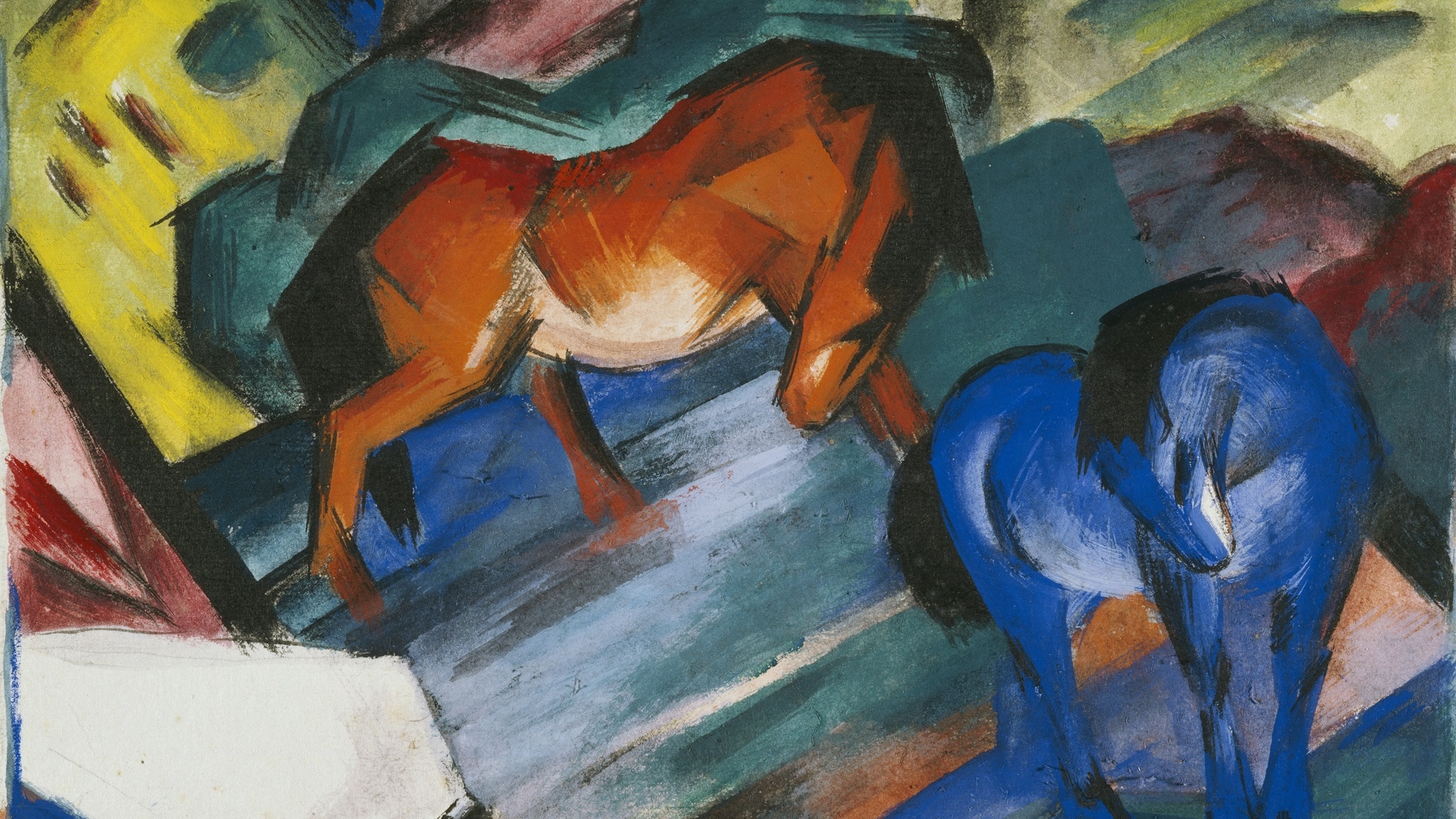
15 – Visions of Utopia in German Modernist Art, 1905-1925
On campus
Course 15 – Summer School on campus
Monday 1 – Friday 5 July 2024
Dr Niccola Shearman
£645
Booking for this course is now closed.
Course description
The German art world was taken by a storm with the dynamic visions of the German Expressionists. Offering a bridge to a new society, the Brücke artists of Dresden explored new physical freedoms in their bold graphics and vibrant canvases. Equally keen to change the world were the artists of Munich’s Blaue Reiter, on a spiritual mission expressed in glowing landscapes and vistas of cosmic and pantheistic union. Across the board there was a shared belief in the transformative powers of art, with the combative energy to match. Even amidst the tranquil water meadows of Worpswede, the spirit of rural commune was exercised as a rejection of the academic tradition. And for all concerned, the daring example of the French avant-garde and a fascination for the art of non-European cultures were to be a vital shot in the arm.
What drove this impassioned leap forward? Whence the inspiration and ideals that fuelled a period noted for its ‘manic-depressive’ character? In painting, graphics, sculpture, film; in class and on a variety of museum visits, this course leads from an ecstatic beginning through the devastation of a war embraced by many in a tragic spirit of renewal, and on to the blossoming of new hope exemplified in the founding of the Bauhaus, until the realities of hyperinflation begin to bite and Expressionism is finally declared to be over.
Our studies will take us beyond the classroom to visit the Tate exhibition, Expressionists: Kandinsky, Münter and the Blue Rider, and to graphic collections at the British Museum and The Courtauld. Topics for critical discussion will include, for instance: a rejection of materialism in favour of ‘the spiritual’; theories of colour and abstraction; opportunities for women; colonialist attitudes towards works of ‘the other’; politics, philosophy and post-modern perspectives on this quintessential period of high modernism.
Lecturer's biography
Dr Niccola Shearman is a historian of twentieth century art, with a focus on Germany and Austria to 1945. She has held academic teaching positions at The Courtauld Institute and the University of Manchester and is a regular lecturer for Courtauld Short Courses and the V&A. In autumn 2022 she ran the Showcasing Art History lectures, Agents of Change: women artists in German and Austrian modernism. Research interests lie in histories of printmaking; in theories of art and perception; and in women artists in 1920s Berlin, in Vienna and in exile in the UK. Articles and book reviews have covered similar themes, and she is working on a book based on her PhD (2018) concerning the woodcut print in the aftermath of the First World War in Germany.